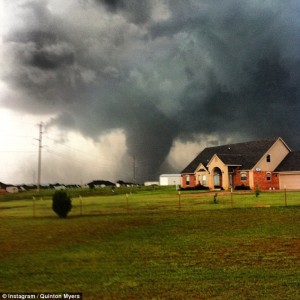
The slew of tornadoes that recently hit the midwest nearly destroyed the small Nebraska town of Pilger. Twin tornadoes took out the town’s post office, fire station, and dozens of homes and businesses. Pilger is known for its slogan “The little town too tough to die,” but the devastation caused to this small community of 378 residents has the Omaha Herald looking to rural sociologist Randy Cantrell for answers to the question of this town’s survival. From the Omaha Herald:
Businesses and families in Pilger will decide what’s in their individual best interests, said Randy Cantrell, a rural sociologist at the Rural Futures Institute. Nothing else — including a community’s geographic location or population — matters as much in determining whether a place lives or dies, he said.
Cantrell goes on to argue that the aging population of Pilger is an important variable to consider, saying that almost one-third of the homes damaged in Pilger were owned or occupied by single people over 65. “That probably makes it iffy whether they rebuild or return,’’ he said. Speaking of the whole community, the article summarizes Cantrell:
Residents of all ages have many things to consider, Cantrell said. Among them are the age of their damaged houses, how much of an insurance payout they receive, where other family members reside and whether their jobs remain in town. Businesses pondering their future will consider that if they moved they would be starting over in a new market with no guarantee of success.
The residents of Pilger and nearby towns expressed confidence in the town’s ability to rebuild, citing the successful recovery of another small Nebraska town, Hallam, that was similarly devastated by a tornado in 2004. Given that no factor matters more, the community’s determination to rise from the wreckage may prove that not even a tornado can kill the tough little town.
For more on the sociology of natural disasters, check out this Sociological Images chart detailing how humans cause tornadoes and this SSN brief on how to better respond to natural disasters.

Comments